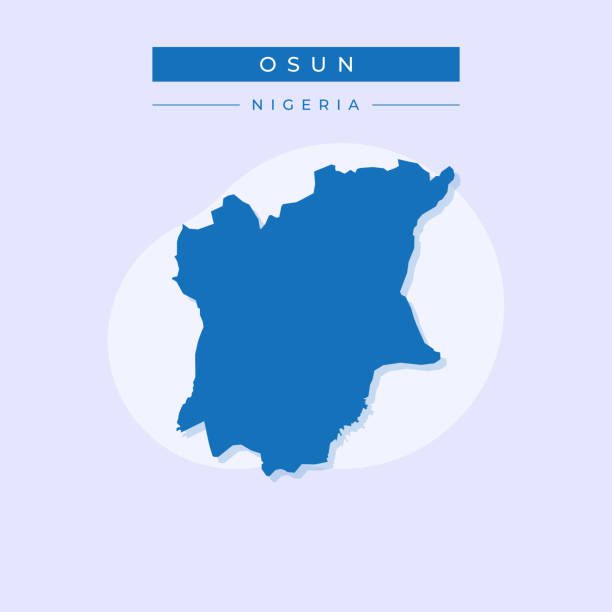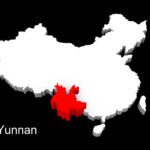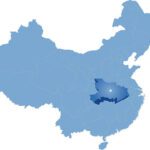The name ‘’Osun’ comes from a river that flows through the state., Osun state located in the southwestern region of Nigeria, is a vibrant entity known for its rich cultural heritage and significant economic contributions. Established in 1991, it has since evolved into a beacon of cultural pride and economic potential. Osun State is often referred to as “The State of the Living Spring.” This nickname reflects its rich cultural heritage, natural beauty, and the vital role of the River Osun in the state’s identity and livelihood. The state is renowned for its deep-rooted traditions, particularly the annual Osun-Osogbo Festival, which is a UNESCO-recognized event that attracts tourists and cultural enthusiasts from around the globe.
Osun State’s economy is diverse, with agriculture, commerce, and education being key sectors. The state’s fertile land supports the cultivation of a variety of crops, including cocoa, yam, maize, and cassava, contributing significantly to the local and national economy. Additionally, Osun is home to several institutions of higher learning, which foster educational development and stimulate economic activities through their research and innovation endeavors.
The state government has taken the initiative to put policies into place that will improve social services, healthcare, and infrastructure, which will raise the standard of living for its citizens. To establish Osun State as a progressive and vibrant part of Nigeria, continuous efforts are being made to modernize agriculture, promote industrial growth, and attract foreign investment.
History
Osun State is the origin of my paternal ancestors, making it my biological place of origin history-wise, although I was born and raised in Lagos state, Nigeria; until I migrated to the United States of America.
Osun State is rich in natural beauty and cultural legacy; Osun State, located in southwest Nigeria, is bordered to the east by the states of Ekiti and Ondo, to the north by Kwara, to the south by Ogun, and the west by Oyo. The state was carved out from the former territory of Oyo State during a boundary re-drawing in the 1990s, Osun State was created on August 27, 1991, from the southeast of Oyo State, with Osogbo serving as its capital. The state is named after the River Osun, a significant river that flows through it.
Of Nigeria’s 36 states, Osun ranks as the ninth smallest in area and the nineteenth most populous, with an estimated population of 5.1 million people in 2019. Geographically, the state features the Nigerian lowland forests covering most areas, transitioning to the drier Guinean forest-savanna mosaic in the north. The River Osun bisects the state’s interior, forming much of its southwestern border with Oyo State before flowing south. Other significant rivers include the Erinle and Oba rivers, both tributaries of the Osun, which flow from the north before merging with the Osun along the southwestern border.
Demographics
The population and Ethnic group
The population of Osun State people is fairly large, according to history regarding the Yoruba tradition, Osun State which was carved out of old Oyo State is one of the earliest kingdoms in Nigeria. It is believed that all the kingdoms in Nigeria evolved from (was born out of) Ile-Ife, which is the major Kingdom in Osun state, Nigeria. Osun State consists of 30 local government areas (LGAs), with a population of 5.1 million people in 2019. Osun State is predominantly inhabited by the Yoruba people, specifically sub-ethnic groups such as the Ife, Ijesha, Oyo, Ibolo, and Igbomina. Yoruba and English are the official languages spoken in the state.
Osun is a multi-religious state where Islam, Christianity, and traditional worship are practiced. Diverse faiths coexist peacefully, demonstrating a lesson in tolerance. Since its creation, the state has never experienced any religious crisis, whether minor or major.
Economy and Cultural Significance
Osun State’s cultural values and significance which enhance the state’s economy are highly applauded worldwide. Osun’s economy is based mainly on agriculture, but small and medium-sized businesses also make a substantial contribution. The state’s agricultural output is increased by the River Osun’s irrigation help for agriculture. Additionally, Osun’s economy depends heavily on tourism, fueled by historical and cultural landmarks. Osun state is the largest cocoa producer in Nigeria, responsible for over 40% of all cocoa exports in Nigeria. The state’s abundance of food and cash crops, which draws traders and artisans, has earned it the nickname “Breadbasket of South-West Nigeria” which it arguably still holds. Osun State beckons with its lush landscapes, vibrant festivals, and rich cultural heritage that will leave anyone (especially tourists) enchanted. Osun state’s Cottage industries offer a wide range of products, including brass work, woven textiles, and wood carvings. In Oshogbo, the country’s capital, there is a textile mill, a food processing facility, and a steel rolling mill. Artisanal mining and livestock herding are also significant industries, particularly in urban areas. When it comes to the Yoruba people, Aso-Oke (Cloth weaving) has been a centuries-old tradition, although it is now most notably practiced by the Ede people in Osun. Aso-Oke fabrics estimated at over N3 million are rolled out daily to meet the needs of several Yoruba people holding one ceremony or the other. The venture provides ready jobs for teeming youths who derive pleasure and contentment in earning a decent living from it. Osun State takes immense pride in its rich cultural heritage, vibrant traditions, and colorful festivals that celebrate its history and unity.
For the Economic Importance and social relevance, demands for Aso-oke in all parts of the country, and by the Yoruba in the Diaspora, continue to make Iseyin the hub of local production, and employment generation. For the richness of Aso-Oke to Osun state’s economy:
- Preservation of Traditional Crafts:
- Cultural Heritage: Aso-Oke weaving is a centuries-old tradition among the Yoruba people, particularly the Ede community in Osun State. Preserving this craft helps maintain cultural identity and heritage, attracting cultural tourism.
- Skill Development: The craft requires specialized skills passed down through generations, ensuring the continuation of traditional knowledge and expertise.
- Employment and Income Generation:
- Job Creation: Aso-oke weaving provides employment opportunities for artisans, weavers, and traders within the state. This includes both direct employment in weaving and indirect jobs in related sectors such as dyeing, tailoring, and retail.
- Economic Upliftment: Income from Aso-Oke production and sales supports the livelihoods of many families, contributing to the local economy and reducing poverty.
- Tourism Attraction:
- Cultural Tourism: Tourists visit Osun State to experience its rich cultural heritage, including the Aso-Oke weaving process. This influx of tourists boosts the local economy through spending on accommodation, food, and other services.
- Festivals and Events: Events like the Osun-Osogbo Festival showcase Aso-Oke, attracting national and international visitors and generating significant revenue.
- Market Expansion and Trade:
- Local Markets: Aso-Oke is sold locally, providing income for weavers and traders. It is also used in local ceremonies, increasing its demand.
- Export Potential: High-quality Aso-Oke is increasingly recognized globally, opening export opportunities and bringing foreign exchange into the state.
- Promotion of Small and Medium Enterprises (SMEs):
- Cottage Industries: Many small and medium-sized enterprises (SMEs) in Osun State focus on Aso-Oke production, contributing to the diversification of the local economy.
- Innovation and Entrepreneurship: The craft encourages innovation in design and production techniques, fostering entrepreneurship and business development.
- Cultural Pride and Community Cohesion:
- Social Cohesion: Aso-Oke weaving fosters a sense of community and cultural pride among the people of Osun State, strengthening social bonds and promoting a cohesive society.
- Cultural Exchange: The craft serves as a medium for cultural exchange, attracting interest from other parts of Nigeria and beyond, thus promoting cultural understanding and unity.
In summary, Aso-Oke weaving significantly supports the economy of Osun State by preserving cultural heritage, generating employment, attracting tourism, expanding markets, promoting SMEs, and fostering community cohesion. The continued practice and promotion of this traditional craft contribute to the state’s economic and social development.
However, despite the gradual fading away of celebrated African cultural traditions, another one that has not only stood the test of time but has been a reference point even till today, is the Osun Oshogbo festival. Since 1370, the people of this part of the world, South-West Nigeria, have been able to hold on to what was bestowed on them by their forefathers.
Government Leadership in Osun State
In Osun State, the governor serves as the chief executive officer of the state, overseeing its overall governance. This role includes formulating and implementing policies. Additionally, the governor holds the authority to appoint and remove all state officials, including the deputy governor, the secretary to the state government, the chief of staff, and the head of the service.
Governor’s Role
Chief Executive Officer of Osun State
- Oversees overall governance and policy implementation
Responsibilities:
- Formulates and implements state policies
- Appoints and removes state officials
Deputy Governor’s Role
- Assists the governor in executive functions and governance.
- Acts as the governor’s representative in various capacities.
- Steps in as acting governor when the governor is unavailable.
Secretary to the State Government’s Role
- Coordinates the activities of government ministries and agencies.
- Ensures the implementation of government policies and decisions.
- Acts as a liaison between the governor and other branches of government.
Chief of Staff’s Role
- Manages the governor’s office and daily activities.
- Oversees the governor’s schedule and correspondence.
- Coordinates activities and communication within the governor’s team.
- Advises the governor on policy.
Head of Service Role
- Acts as the leader of the state’s civil service.
- Manages the recruitment, training, and development of civil servants.
- Ensures efficient and effective public service delivery.
- Implements civil service reforms and policies.
The current governor in Osun State, Ademola Nurudeen Jackson Adeleke, was elected in 2022. He is a Nigerian politician and businessman. He was the senator who represented the Osun-west senatorial district from 2017 to 2019. He is from the Adeleke family of Ede. The governor is responsible for the provision of education in the state, and the provision of health care services, as well as responsible for the development of infrastructure (roads, bridges, hospitals, and other public facilities) in the state.
Life in the Osun State
Education
Osun State is well-known for having the country’s second-highest literacy rate. The pursuit of Western education has always been a source of pride in Osun State, resulting in a high literacy level. The state benefits significantly from a robust presence of educational institutions operated by both the public and private sectors. Osun boasts a variety of technical schools, health technology schools, schools of nursing and midwifery, two public polytechnics, and three private ones, as well as two public universities and five private universities. Education is one of the pillars of Osun state development. With reputable institutions such as Obafemi Awolowo University and Osun State University, they strive to nurture the minds that will lead the state into the future. These institutions are not only centers of learning but also hubs of innovation and research, driving socio-economic development.
Osun State is endowed with exceptional traditional leaders who possess extensive education and expertise in the areas they serve. These leaders apply their knowledge to benefit their people and their overall advancement. They are highly well-informed, widely traveled, and have a strong desire to see the state through to its full potential. This enlightened leadership plays a crucial role in preserving and promoting the rich cultural heritage of Osun State while also driving social and economic development by teaching and enhancing the culture of the state, passing it over to generations to come.
Health Sector
In Osun State, the health sector is crucial for guaranteeing the well-being of its residents. By offering top-notch healthcare at all levels through the Basic Health Care Provision Fund and a recently unveiled health insurance plan, the sector is dedicated to achieving universal health coverage. The Ministry of Health and the Hospitals Management Board were the two main organizations that composed the Health Sector when it was first established on August 27, 1991, along with the establishment of the state. These organizations operate as the administrative and supervisory bodies which oversee the sector’s operations.
The Health Sector was founded and has collaborated with many national and international organizations, such as WHO, USAID, UNDP, UNFPA, UNICEF, EU, and SFH. These partnerships have improved the industry’s ability to provide a variety of services, including preventive, curative, promotive, and rehabilitative care across the state’s 30 Local Government Areas and 1 Area Office.
Over the years, the number of agencies within the Health Sector in Osun State has expanded, further enhancing its ability to serve the population of Osun State effectively.
Tourism and Natural Beauty
Tourism, driven by the state’s natural beauty and cultural festivals, continues to attract visitors from around the world, further enhancing its economic and social fabric.
Osun State, blessed with the lush tropical rainforests of southwestern Nigeria, is a treasure trove of captivating tourist sites that embody the essence of its rich heritage. Nestled in the heart of the nation, Osun boasts over sixty tourist attractions, each offering a unique glimpse into the state’s cultural and natural splendor.
At the forefront is the sacred Osun-Osogbo Grove, a UNESCO World Heritage Site that stands as a testament to Osun’s deep-rooted traditions. This site is enveloped in spiritual and historical significance, drawing visitors from around the globe to experience its mystical allure. The state is adorned with picturesque landscapes, including the enchanting Olumirin Waterfalls. Here, the cascading waters harmonize with lush greenery, creating a serene haven for nature enthusiasts and adventurers alike. Another natural marvel is the mesmerizing Erin Ijesha Waterfalls, renowned for its seven levels of cascading beauty. This site invites explorers to revel in its natural splendor, offering an unforgettable experience in the heart of nature.
Osun State’s rich tapestry of tourist sites highlights its cultural heritage and showcases its breathtaking natural beauty, making it a premier destination for visitors seeking both adventure and tranquility.
Conclusion
Osun state, often referred to as the ‘Cradle of Yoruba Culture,’ is not just a geographical entity but a living, breathing embodiment of the rich traditions and history. The Osun-Osogbo Sacred Grove, a symbol of Osun’s cultural identity, continues to draw global attention, emphasizing the importance of preserving its heritage while embracing modernity.
The State of Osun is one of the richness of Nigeria flows from the land of Osun, which is called “The State of the Living Spring”, formerly called “The land of virtue”!!!
- It is one of the states in the Nation known to be “The Giant of Africa” Nigeria.
- A vibrant cultural and economic hub, it is rich in heritage, agriculture, and educational excellence.
- It has strong governance and leadership
- It is endowed with great flourishing tourism and natural beauty which continues to grow and thrive, embodying the spirit of progress and tradition.
- Its richness is not just in natural resources but also in culture and entertainment, history, technology and innovation, and human potential.
Therefore,
- Osun state, being a land of promise and potential, therefore,
- Let its rich heritage be celebrated,
- Let its local Industries be supported,
- Invest in its future vision,
- Honor her past and embrace the possibilities of her tomorrow.





